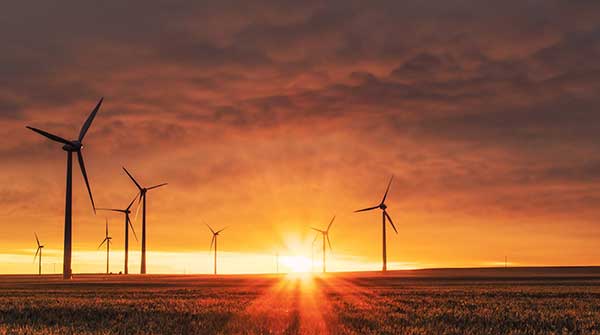Governments in Europe are reassessing EU-directed net zero policies amid public unease
 European governments are beginning to sound the retreat on some foundational net zero policies in the wake of “greenlash” from increasingly overburdened citizens.
European governments are beginning to sound the retreat on some foundational net zero policies in the wake of “greenlash” from increasingly overburdened citizens.
Russia’s invasion of Ukraine in 2022 prompted European governments to begin pivoting away from cheap Russian natural gas, which Europe increasingly relied on to backstop a laundry list of ambitious green policies.
But despite pledges by the European Union to “divest away from Russian gas as quickly as possible,” nearly 15 percent of overall EU gas imports still came from Russia in the first half of 2023, while the amount of liquefied natural gas (LNG) imported from Russia actually increased by 39.5 percent compared to the same period in 2021, prior to the Ukraine invasion.
Energy security and affordability have become central issues for Europeans amid a persistent global energy crisis, and that’s translated into a rethink of what had once seemed like unassailable green policies across Europe.
Here’s a look at how some countries are dealing with the new global reality:
Germany
Nothing is more symbolic of Europe’s retreat from its net zero ambitions than Germany dismantling a wind farm to make room for the expansion of a lignite coal mine just outside of Dusseldorf.
And no European country has been more affected by the changing energy landscape than Germany, which introduced its multi-billion dollar Energiewende program in 2010, calling for a broad phaseout of fossil fuels and nuclear power, replacing them primarily with wind and solar power.
Today, without cheap and reliable natural gas backups due to sanctions against Russia, Germany has gone from Europe’s economic powerhouse to the world’s worst-performing major developed economy, facing “deindustrialization” due to skyrocketing energy costs.
In addition to extending its deadline for shutting down coal plants until 2024, the German government has also scrapped plans to impose tougher building insulation standards to reduce emissions. It is also extending the deadline on controversial legislation to phase out oil and gas heating systems in homes, a decision the government admits will make it impossible to reach the country’s 2030 emissions targets.
A major car manufacturer, Germany’s opposition to an EU-wide ban on the sale of new combustion vehicles by 2035 softened the legislation to allow exceptions for those that run on e-fuels.
Germany’s quest for reliable energy exports prompted Chancellor Olaf Scholz to travel to Canada to make a personal appeal for Canadian LNG. He was sent home empty-handed after Prime Minister Justin Trudeau advised him there wasn’t a strong business case for the resource.
Great Britain
Britons have grown increasingly concerned about the cost of net zero policies despite being broadly supportive of desiring a greener future.
A YouGov poll in August found while 71 percent generally favoured Great Britain’s aim to reduce carbon emissions to net zero by 2050, some 55 percent agreed that policies should only be introduced if they don’t impose any additional costs for citizens. Only 27 percent agreed reaching the goal was important enough to warrant more spending.
That shift in public sentiment prompted Prime Minister Rishi Sunak to pump the brakes on some key policies enacted to reach the U.K.’s legally binding target of achieving net zero emissions by 2050.
In September, the government delayed its looming ban on new gas- and diesel-powered cars by five years to 2035. It is also extending its phaseout of gas boilers in homes and suggesting exemptions for certain households and types of property.
“If we continue down this path, we risk losing the British people and the resulting backlash would not just be against specific policies, but against the wider mission itself,” Sunak said of the potential consequences of maintaining strict net zero policies.
The U.K. government also gave the green light for hundreds of new North Sea oil and gas licences, citing the need to bolster both energy security and the nation’s economy.
France
France’s net zero ambitions enjoy an advantage over its European peers due largely to its significant fleet of nuclear power stations, which provide around 70 percent of its electricity.
However, President Emmanuel Macron has often opted for a more pragmatic approach to reaching climate targets, noting any energy transition can’t leave citizens disadvantaged.
“We want an ecology that is accessible and fair, an ecology that leaves no one without a solution,” Macron said in September after ruling out a total ban on gas boilers, instead offering incentives to those looking to replace them with heat pumps.
Macron also famously dropped a proposed fuel tax in 2018 that sparked sweeping yellow vest protests across France when it was announced.
France has also extended the timeframe of its two remaining coal plants to continue operating until 2027, five years later than the plants were originally set to be shuttered.
Italy
Feeling the impacts of the global energy crisis, Italy has begun reassessing some of its previous commitments to transition goals.
Earlier this year, Italy pushed back on EU directives to improve the energy efficiency of buildings, which Italy’s national building association warned would cost some €400 billion over the next decade, with another €190 billion needed to ensure business properties met the required standards. The Italian government has called for exemptions and longer timelines.
Italy also warned the European Commission it would only support the EU’s phaseout of combustion engine cars if it allows cars running on biofuels to eclipse the deadline, while further questioning a push to slash industrial emissions.
Paolo Angelini, deputy governor at the Bank of Italy, warned a rapid abandonment of fossil fuel-driven industries could have a devastating impact.
“If everybody divests from high-emitting sectors there will be a problem because if the economy does not adjust at the same time, things could blow up unless a miracle happens in terms of new technology,” he said.
Poland
Like Italy, Poland has dug in its heels against some EU net zero initiatives and is actually suing the EU to overturn some of its climate-focused legislation in the courts.
“Does the EU want to make authoritarian decisions about what kind of vehicles Poles will drive and to increase energy prices in Poland? The Polish government will not allow Brussels to dictate,” wrote Polish Climate and Environment Minister Anna Moskwa on X, formerly known as Twitter, in July.
In addition to looking to scrap the EU’s ban on combustion engine cars by 2035, Warsaw is also challenging laws around land use and forestry, updated 2030 emissions reduction targets for EU countries, and a border tariff on carbon-intensive goods entering the European Union.
With some 70 percent of its electricity generated by coal, Poland is one of Europe’s largest users of coal. And it has no designs on a rapid retreat from the most polluting fossil fuel, reaching an agreement with trade unions to keep mining coal until 2049.
Netherlands
The political consequences of leaning too far in on net zero targets are beginning to be seen in the Netherlands.
In March, a farmer’s protest party, the BBB or BoerBurgerBeweging (Farmer-Citizen Movement), shook up the political landscape by capturing 16 of 75 seats in the Dutch Senate, more than any other party, including the ruling coalition of the Labor and Green Parties.
The upstart party was formed in 2019 in response to government plans to significantly reduce nitrogen emissions from livestock by 2030, a move estimated to eliminate 11,200 farms and force another 17,600 farmers to significantly reduce their livestock.
What followed were nationwide protests that saw supermarket distribution centres blockaded, hay bales in flames and manure dumped on highways.
In November, Dutch voters will elect a new national government, and while BBB has dropped to fifth in polling, much of that support has been picked up by the fledgling New Social Contract (NSC), which has vowed to oppose further integration with EU policies, a similar stance offered by the BBB. The NSC currently tops the polls ahead of the Nov. 22 election.
Shawn Logan is Campaign and Advocacy Lead with the Canadian Energy Centre, a Troy Media Editorial Content Provider Partner.
For interview requests, click here.
The opinions expressed by our columnists and contributors are theirs alone and do not inherently or expressly reflect the views of our publication.
© Troy Media
Troy Media is an editorial content provider to media outlets and its own hosted community news outlets across Canada.

